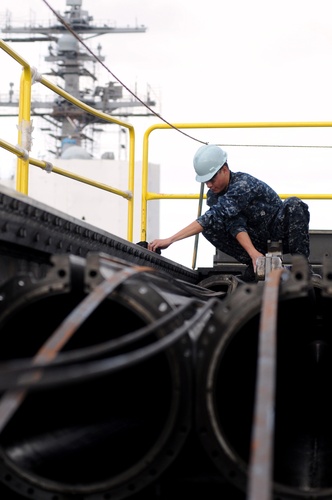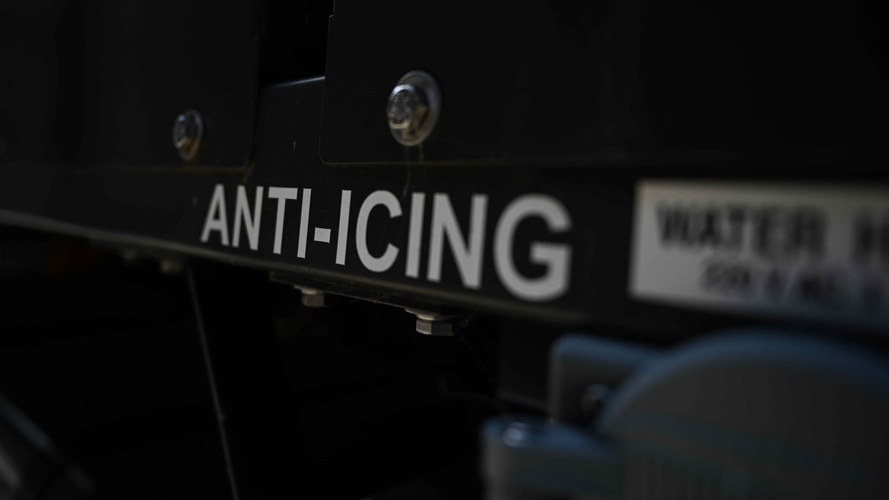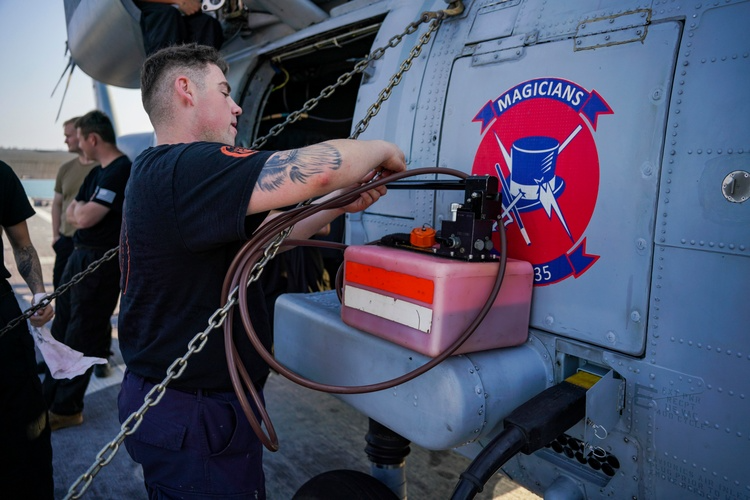Industrial-Grade Cleaning: Uses of Univar 99% Isopropyl Alcohol in Aerospace
When was the last time you had a nasty cut, scrape, or cleaned up one of your kids? And you had to tell them (or coach yourself) that this stuff is “really, really going to burn”? You know the stuff: rubbing alcohol. Or, more accurately, isopropyl alcohol antiseptic.
This is the stuff that you wince about when you pour a dab onto a nasty cut, but you know it’s doing its job.
Well, far from a one-trick pony, isopropyl alcohol is a common disinfectant and antiseptic, and one of the best degreasers out there. The stuff you buy at Walmart or CVS is a mere 70%, while industrial cleaning Univar 99 isopropyl alcohol is 99%, giving users a stout degreasing option. Let’s take a look at what rubbing alcohol can do for you in aircraft maintenance.
1. Surface Preparation Before Painting or Bonding
Rubbing alcohol is a colorless liquid commonly used for surface preparation before painting or applying sealants.
Univar 99 Isopropyl Alcohol is ideal for cleaning aircraft surfaces before painting or adhesive bonding. It removes grease, dirt, and residues without leaving a film behind, a critical step for proper adhesion and corrosion resistance.
The aircraft's surface picks up all kinds of nasty things in flight and on the ground, and isopropyl alcohol cleans off all sorts of things with gusto: snarge, bug splatters, grease, dirt, you name it.
.webp)
2. Precision Cleaning of Electronic Components
Due to its non-conductive, fast-evaporating properties, isopropyl alcohol cleans sensitive electronic components in avionics maintenance. It eliminates dust and oils without damaging circuits or leaving moisture.
If you have used it, you know how fast it evaporates once it hits the air. You can clean sensitive electronic components with it (as long as it is an approved time for the element; always check first) and know that Univar 99 will glean the grime and evaporate, leaving a clean, dry surface.
Also, since it is hydroscopic by nature, it will absorb water molecules and evaporate, removing traces of water from electronics and electrical connections.
3. Degreasing Metal Parts During Maintenance
Isopropyl alcohol effectively dissolves oil, hydraulic fluid, and other grime from the engine and mechanical components. It is a natural, high-strength degreaser that leaves no chemical residue, since it evaporates.
Also, the central selling point is that it does not leave any residue afterwards. Chemical degreasers have a bad habit of leaving thick chemical residues. IPA does not respond that way; it leaves a dry surface free from contaminants.

4. Cleaning Composite Materials Without Damage
Modern aircraft use composite materials that require delicate handling. Composites consist primarily of a handful of chemicals, usually carbon fiber, fiberglass mesh, epoxies, and other high-strength adhesives. They are fairly simple in theory and, once properly cured and hardened, are much stronger than traditional building materials.
By much stronger, we mean many times stronger. However, strength can be misleading; the core of composites is usually foam covered by fiberglass cloth and impregnated with epoxy. These materials are very susceptible to melting and other chemical damage, which will eat away at the foam core.
Isopropyl alcohol is safe for cleaning these surfaces, especially when harsh chemicals would cause degradation or delamination.
5. Disinfecting Tools and Work Surfaces
In hangars and cabins, technicians use isopropyl alcohol to sanitize tools, benches, and gloves. Because of its well-documented degreasing properties and water-removal capabilities, IPA is an excellent product to keep on hand for cleaning and disinfecting tools and work areas.
It is also helpful in the cabin for disinfecting surface areas without the harsh and lingering effects of other cleaning chemicals.
6. Prepping Surfaces for Sealant or Lubricant Application
We touched on this earlier, but IPA is a great product for cleaning surfaces prior to applying sealants like PPG PR-2201 B-1 or any of the assorted B ½ sealants. With PR-2201 B-1 costing sometimes over $1,000 per pack, depending on the source, surface preparation is extremely important to get it right before the sealant is poured.
7. Flushing and Cleaning Pneumatic Lines
This is more of a shop issue than an aircraft-specific issue, but it highlights how highly versatile IPA is in the workplace. It cuts grease and grime, disinfects cabins and workspaces, and can even flush pneumatic shop lines to remove air.
Again, follow instructions and read the Univar 99 SDS before using it.
8. Post-Machining Residue Removal
After CNC machining or grinding aircraft parts, IPA removes metal shavings, coolant residues, and cutting oils, ensuring a clean finish before coating or assembly.
Machining leaves all kinds of residue when old material, cached in paint, grease, and grime, is milled off. Univar 99 IPA is an effective way to clean surfaces, removing grime and cutting oils used in milling and machining. You can use a rag soaked in isopropyl acetate, or you can squirt a stream to blast off shavings and grime.
9. Cold Weather Applications and Deicing Support
Due to its low freezing point, IPA can be used in specific deicing preparations and cleaning processes in cold environments without risking freezing during application. Check the specifics of the parts in question; IPAs are commonly used in deicing items. Again, another use for this most versatile liquid.

10. Compliance with Aerospace Regulations and Standards
Univar 99 IPA meets many aerospace cleanliness requirements, making it compliant with aerospace industry guidelines for cleaning agents.
Univar 99 is a high‑purity (99%) USP‑grade isopropyl alcohol—also known as isopropanol or 2‑propanol—commonly supplied in five‑ or 55‑gallon drums. This clear, colorless solvent with a mild odor is fully miscible with water, alcohol, and most organic solvents, and effectively dissolves oils, natural resins, cellulose, alkaloids, and gums.
According to chemcentral.com, it features a low freezing point (around −88 °C), a boiling point in the low 80s °C, and a flash point near 12 °C. While it offers relatively low toxicity compared to other solvents, it remains highly flammable and can cause serious eye irritation or respiratory effects if not handled properly.
Final Thoughts
Univar 99 Isopropyl Alcohol is more than just a cleaning agent; it’s a critical part of the aerospace maintenance and manufacturing ecosystem. Its versatility and effectiveness make it a trusted material in hangars and facilities worldwide, from preparing surfaces to maintaining electronic systems. Standard solvents are so harsh that handling them is a serious safety concern, whereas IPA has been a standard item in first aid kits for decades.
With so many different uses in aviation, Univar 99 IPA is a staple item for your MRO or line maintenance unit to handle all kinds of different tasks.
To meet your IPA demands, Greenwood Aerospace distributes Univar 99 IPA in 55-gallon drums to keep you in business for a long time. Call us at (580) 762-2580 or email us at contact@governmentprocurement.com.

.webp)
.svg)
.webp)

.webp)


